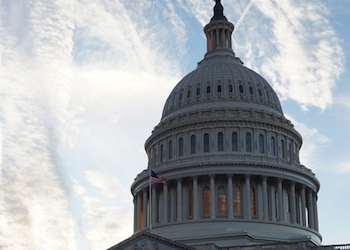Members of the US Congress have introduced a resolution supporting the anti-corruption efforts of several Central American governments, showing the legislative body’s commitment to backing such initiatives even as they come under fire in the region.
The bipartisan resolution was submitted on February 16 by Rep. Norma Torres (D-CA) and Rep. John Moolenaar (R-MI). Members of Congress from both major parties signed on as co-sponsors, including Reps. Eliot Engel (D-NY), Michael McCaul (R-TX), Albio Sires (D-NJ), David Valadao (R-CA), Ted Poe (R-TX), and Don Young (R-AK).
The resolution notes the existence of “widespread corruption in Central America” — particularly in the “Northern Triangle” countries of Honduras, El Salvador and Guatemala — and states that “combating corruption in the Northern Triangle must remain a top policy priority for the United States in Central America.”
The resolution says that internationally backed anti-corruption bodies like the Mission to Support the Fight against Corruption and Impunity in Honduras (Misión de Apoyo contra la Corrupción y la Impunidad en Honduras – MACCIH) and the International Commission against Impunity in Guatemala (Comisión Internacional contra la Impunidad en Guatemala – CICIG) are “important contributions to this effort.”
The resolution concludes by urging governments in the region to “publicly support efforts to fight corruption” by cooperating with the international bodies and ensuring that sufficient resources are allocated for their judiciaries to be able to pursue corruption cases.
The resolution, if approved, would not create any new laws nor would it provide new funding for anti-corruption efforts in Central America. Its passage would simply express the “sense of the House of Representatives regarding the fight against corruption” in the region.
InSight Crime Analysis
Although the congressional resolution will not have any immediate impacts in terms of the implementation of US policy in Central America, it is clearly intended to send a message of support to officials working on anti-corruption efforts in the region.
The introduction of the resolution comes just days after CICIG Commissioner Iván Velásquez responded to a long-running smear campaign against him and his work, which he claimed was orchestrated by “criminals who are part of these criminal structures” that CICIG was created to help combat.
Following Velásquez’s statements, many Guatemalans voiced their support for CICIG and the commissioner on social media networks. The US Embassy also commented on the situation on its Twitter account, writing, “We add ourselves to the honest Guatemalans that recognize [the] successful work of CICIG and Commissioner Ivan Velásquez.”
US support has previously proven crucial to the survival of CICIG. US officials put strong pressure on then-Guatemalan President Otto Pérez Molina to renew the commission’s mandate in 2015, reportedly threatening to withhold cooperation on economic development projects if he refused. (Somewhat ironically, the commission’s renewal later helped land Pérez Molina in jail on corruption charges.)
SEE ALSO: InDepth Coverage of Elites and Organized Crime
The support of the US government will be important in ensuring the continuation of other anti-corruption efforts in the Northern Triangle, like the MACCIH and the recently created anti-impunity unit within the El Salvador Attorney General’s Office. And in addition to many members of Congress, it seems that the administration of US President Donald Trump is also prepared to back such efforts.
A former official under US President George W. Bush who has been working with Trump’s State Department transition team told InSight Crime that Republican Party operatives have been pressuring the newly-inaugurated president to express strong support for CICIG. And it appears that Trump and his team have accepted this advice.
Trump’s Secretary of State Rex Tillerson told the US Senate during confirmation proceedings that the new administration would continue to back anti-corruption efforts in Central America.
“Yes, we will continue to support the important anti-corruption mission of the CICIG in Guatemala and MACCIH in Honduras,” Tillerson wrote in response to a question. “We will also provide foreign assistance to our Central American partners to help combat crime and impunity, promote public safety, and ensure that citizens of those countries have access to a functioning and fair justice system.”

